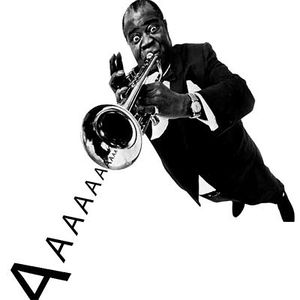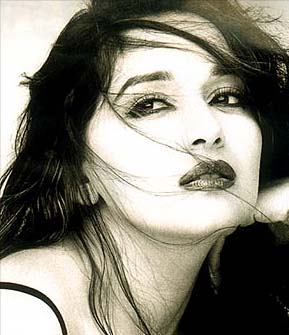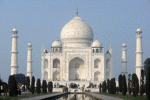Hindi
In India भारत each region has its own language. People who speak Hindi हिन्दी are also known as Biharis, Bhayyas, Jatts. Hindi हिन्दी is spoken by Indians who don't speak the other 700 languages of India. Hindi is a deteriorated version of Sanskrit. It is Ghetto-ized Sanskrit. While people who speak Hindi and 700 other languages in India are mostly Hindus, a mutant version of Hindi, known as Urdu, is spoken by Muslims. Urdu originated when Hindi language got raped by Persian language. Urdu is like the Bastard Child of the Indian Subcontinent. Urdu literally means (Ur - "Whore" in Arabic, du is "child" in Pashto, thus the literal meaning of Urdu is "Bastard Child"). Indians confused about the faith they belong to, i.e. uncertain if they are Hindu, Muslim or 50-50, speak Hirdu while the Christians talk Bullshit. The Buddhists, Jains, Jews, Zoroastrians, Parsis and the significantly large religious community of the faith Et Cetera all have their unique home languages to avoid mutual intelligibility. Gandhi, a prominent linguist, and contemporary of Noam Chomsky—and also the father of the Indian National Languages (well, yes, Gandhi was sexually more virile than his colleague Chomsky)—has praised Hindi thus:
"Hindi-Urdu is not really a language but a beautiful schizophrenic cricket ball. When the ball hits the pitch at the centre and moves to the right in Devanagari fashion, it is known as Hindi but when it pitches and the batter expects it to swing right, but it violently wobbles up and swings in a reverse direction, it is known as Urdu. "
Urdu is therefore said to be a poetic cricket ball. Einstein Khan, the famous Urdu poet and Bollywood actor also added "It is the 'uncertainty' principle which determines when the ball is Hindi and when it is Urdu. My hairstyle resembles Urdu though!!''
"Gandhi was the only person who had both balls. Noam Chomsky, of course, had none.
History[edit | edit source]
When Sanskrit became sloppy and crude, different kinds of talks (Discussion Pages) called bhasas (Headers) arose all over the Indian subcontinent. The bhasha around Delhi was generally considered the right one by those who lived around Delhi. This bhasha, called khari boli, became the default language or "the" page for discussion. Those who did not speak khari boli (mostly those who did not live in or around Delhi), found the language exceptionally foul.
When the Persian muslims invaded India they did what they could to straighten this foul "talk" - they added a lot of equally foul Farsi words that they believed were good to balance the "foul" with the "vile" in Delhi's talk. The Indian language Hindustani, a super foul language was thus born from this cultural rape of Sanskrit—commonly acknowledged by all, the poor and the rich, the privileged and the not so privileged, from Connaught Place to Old Delhi Railway Station in Delhi as "the" language or "the" talk-page of the common man.
From Hindustani was carved out Urdu ("A peace of naan the carving was," M. Jinnah, Bar-at-Law, QC, BA, LLB, would later declare to historians curious about the event) by replacing all remaining, degenerate Sanskrit words by imported, degenerate Farsi ones. From what was left was carved out Hindi ("A peace of chapatti this carving was," J. Nehru, Bar-at-Law, QC, BA, LLB, would later declare to the hoi polloi curious about the historical event) by Brahmin pundits by replacing degenerate Farsi words (that many Indians, with great hardship, had just begun to understand) by original Sanskrit words that none remembered. At this point the Tamilians started to panic and begged the British Empire to reinstall itself as eternal supervisor of the Indian subcontinent. This crisis for the newly born Indian Republic was not resolved until every state of the Indian republic, viz. every public that could state itself to be different from the republic ad nauseam, could uphold its own choice of language that was neither Urdu nor Hindi but Hebrew, Esperanto, French, Tamil, Telugu, Assamese, C, C++, Et Cetera. Ultimately Engrish was introduced as the official language alongside Hindi in order to create a friendly environment within which people could freely express themselves. It no longer mattered if people spoke Hindi or Engrish or Et Cetera because they could now effectively communicate in India's polyglot Bicameral Parliament by throwing shoes, chappals, tables and chairs at each other while rushing towards the "well" of the House for no rhyme or reason—live on National TV—to bolster pride in this new national method of communication (as an alternative to Engrish & Hindi) and to unite babble India. The hoi polloi watched and learned this national language very fast. 4300 amendments were required in the Indian Constitution to align Hindi, Engrish and Et Cetra with this modern method of communication [1]
Grammar[edit | edit source]

The LAG machine converts English words into Hindi in the desired Indic script. In the above operation, the generator is generating "Hindi" written in the Gautami-Brahmi script from the input "Hindi" written in the Roman script.
'
Unnecessary endings[edit | edit source]
Most Engrish sentences begin with an unnecessary ''Hey''; as in ''Hey, have you seen my bicycle?''. Since Indians are easily impressed by all things Engrish, Hindi has loaned this word from Engrish. Thus most sentences in Hindi contain an unnecessary ''hey'' or ''hAi'', but is spelt in Devanagari, which means we don't know what it really looks like. Since Indians are always late, the Hindi ''hai'' most of the time comes last in the sentence. This feature has recently become very popular since it makes it a lot more easy for the numerous Bollywood flick songs to rhyme.
Hindi-speakers also add the suffix "G" (wrongly spelt as "-ji") while talking to elders.
Late postpositions[edit | edit source]
The Indian tendency of always being late can also be seen on the Hindi preposition. Hindi prepositions are so lazy that they hardly ever catch up in time with the substantives they are supposed to precede. Instead, they lag behind and become postpositions. In fact, all Hindi words have a tendency to accumulate up at the end of the sentences, thus leaving the beginning to its own fate. In order to speak proper Hindi one must therefore speak like the natives: pretty fast to be sure not to be interrupted by a punctuation mark - or more often - a hastier fellow Hindi speaker.
Complicated pronominas[edit | edit source]
Hindi also has a peculiar construction of pronominas known as the relative-corelative coupling. This structure makes the Hindi mind work in an indescribable backward way: Hindi speakers express and interpret sentences like no other people.
For instance, where another Indo-European speaker, like a French or an Englishman, would say:
Sure, I will pay you when (relative pronomina)I get some money.
the Hindi speaker would interpret this as:
Sure, when (relative) it starts to snow in Hell, until then (co-relative) you'll pay me nothing!
And a simple sentence like:
I dance like (relative) a God.
said by an Englishman, can elicit an elaborate answer from a Hindi speaker like:
Like (relative) the elephant drags a trunk, that way (co-relative) you move your ass around!
The rest of the junk[edit | edit source]
The rest of Hindi Grammar is quite obvious and because it is very similar to Engrish grammar -- most readers, we assume, are familiar with Engrish grammar? you may start here if you aren't—it is not elaborated in this article (See "Grammar" in Engrish for an elaboration). It's not without that a reason that Hindi and Engrish are both categorized as belonging to the same family of languages, viz. Indo-European languages. Seriously, this is quite a remarkable discovery for we could never have guessed that the two are related until someone had hit us with a cricket bat on our heads - or maybe two cricket bats; a cricket bat and a seasoned ball?
Comparative linguistics[edit | edit source]
Hindi, as a member of the Indo-Aryan branch differs from Iranian languages primarily by the absence of dirty language. Just like every sentence in farsi has a perverted undermeaning, the Hindi sentences has not. Sexual and anal pejoratives is absent in Hindi primarily because the Hindu mind tends to blank out at the very thought of that sort of things. The closest we get to a real swearword in Hindi is salaa, this because of the things he is obviously doing to your sister.
The aggressive English culture has stolen a lot of common words from Hindi, and claimed them for themselves. for e.g. jungle is a Hindi word and they took it, verandah is another Hindi word borrowed from Bengali that they took. Punch is a lovely beverage which they also stole like simple muslims thieves, and without the Hindi schampoo they would still go around and smell like Englishmen.
But the Indian community is peaceful and serene and don't care much about this. Instead they try to be benovelent and enlightened teachers learning the Englishmen how to rock the cradle, by politely loaning crores of English technical and economical terms, promising to return them as soon as they are used up to the egde of detoriation.
While Europeans look at romance as a sort of brain rot, Indians tend to look at organized thought as a sheer waste of good curry. Therefore, Hindi, according to the Hindus, is the true language of love. Can you think of any other language with so many words for love? Can you think? Can you? And if you compare the population growth statistics for, I think the aphrodisiacal effects of Hindi will become apparent to even the most mule-headed loser without any further explanation.
Plus, many modern Indian immigrants are doctors, engineers, and computer programmers. Is there anything more romantic than making heaps and heaps of money and moving to the suburbs?
When compared to a flask of wine and a dried out baguette at the Eiffel Tower, I think it's fairly obvious which scenario is going to be the obvious winner: the one with the gated entrance and liveried attendants. And that's because we're all secretly a little obsessed with making crazy bank. Otherwise, how do you explain lawyers?
Bollywood[edit | edit source]

Without Hindi, there would be no such thing as Bollywood. Without Bollywood, there would be many fewer songs and dance numbers in movies which may or may not be a good thing. Then the song ends and some horrible tragedy happens.]]
These contemporary song and dance numbers should never ever be confused with the Golden Era of Hollywood, or Hokey Pokey, or Delirium tremens, or St. Vitus' Dance. In fact, they are easily distinguishable for several reasons that are peculiar only to Hindi movies:
- Birds Chirping when the actors are making out.
- Sex scenes with clothes (even suits and tuxedos at times)
- Juggling with a gun and shooting it over a distance of 500 km.
- Wet sari scenes.
- Sarees whose color change in between dance numbers.
- Unibrow.
Better Left Unsaid[edit | edit source]
If one were to declare one's love for another (usually to someone of the opposite sex [2]) in Hindi, one would say:
"Mera dil tujhe ek pal ke liye bhi bhoola naheen; aur mere pyar ki koi seema naheen, na kabhi hogee. Yaad rakhna yeh - hamesha! "
It's much less musical or heart-warming in English. When transliterated, it reads:
"Get in the kitchen, bitch, and make me a sandwich."
In fact, the English version sounds a wee crude, verging on the artless, while the Hindi version has the counterpoints, cadences and the lyrical in its rendition of an expression, a sentiment, an emotion ("love" in this case) that is better left unsaid in most languages.
In Urdu this is expressed as: "Zeehale muskin, mukun baranjish, bahaale hijara, bechara dil hai. Sunai deti hai jiski dhadkan, hamara dil ya tumhara dil hai"
The above transliterated into English, reads:
"Get in the barn, sheep, and brace your hind legs"
International Arena[edit | edit source]
Highly intellectual North Indians (oxymoron alert) were so proud of Hindi and its romantic qualities that the Indian Govt. made a formal proposal in 1998 to the Olympic Committee to include the sport "Hindi poetry" in the Olympics so that India could win an uncontested gold medal in the sport. An Olympic gold medal has eluded India since God Rama won it for archery in the 4321 BC Athens Olympics for shooting a ten headed zombie with a single arrow beating Thor and Zeus.
The proposal to include Hindi poetry was put forward by the Yadav Brothers: Lal-loo ("Red Toilet" in Hindi) and Mullah-ham Sing (The Song that automatically spews out of the mouths of Mullahs in Urdu when they eat ham). Efforts of he Olympic Committee to convince Indians that "Hindi poetry" - no matter how romantic it sounded - did not constitute a sport was a drastic failure. Ultimately the committee yielded to the sheer persuasive force of 250 million people and Laloo's pet Buffalo- all Cow-belt Biharis.
Their effort did not go unrewarded: In the 2000 Sydney Olympics A Dull Bihari -Vajpayee won the Gold medal in Hindi Poetry ending the 6321-year drought. However India lost a great deal of money because many top athletes sued India for permanent ear damage. However India's spirit for this noble cause was relentless; they sent Vajpayee to the UN. Here he managed to damage the ears of George Bush, the Iraqis, Iranians and the North Koreans sending them all spiralling to a never ending war on terror.
Hindi Poetry has since been accepted as Humanity's greatest achievement overhauling Space Travel and Nano technology.
Indian Arena[edit | edit source]
There is a huge AIDS epidemic in India and India has the maximum number of HIV infected people. HIV stands for the Hindi Imposition Virus. This virus causes a person to surrender his own body and soul to the virus believing that he is inferior to it. At the full blown stage, it is known as AIDS-Acute Inflammatory Devanagari Scratches where people start scratching the walls, currency notes, coins, passports and their own bodies in Devanagari. AIDS is largely an A.I.R borne disease. The virus is largely spread through the A.I.R (All India Radio), CBSE. Durdarshan (Translates as "Bad-vision" in English) used to be a popular medium of virulence but the medium is very scarce nowadays. Most Indians do not have immunity to this virus. The Tamils used to have it in the 1960s but their immune system too has been severely compromised in recent years.
End Notes[edit | edit source]
- ↑ This is primarily because the first draft of the Indian Constitution was a blatant copy of the British Constitution. However, the British constitution was an "unwritten" constitution in English, while the Indian constitution was a "written" constitution in Engrish. The British parliamentarians have since been changing their constitution (which does not require "amendments" since it's unwritten) rapidly while the Indians have been making amendments to catch up with the British constitution. The British do this just to annoy Indian parliamentarians - they call it British humour
- ↑ There are no gays or lesbians in Hindi movies. There are hermaphrodites but they don't fall in love in Hindi movies like they do in Hollywood.

|
A nation united by virtually nothing, except perhaps Ganesha's wrinkly elephant arse
|

|
| States: East Bengal • Kashmir • Kerala • Maharashtra • Nepal • Tibet • Tulu Nadu | ||
| Cities: Bangalore • Chandigarh • Delhi • Kolkata • Pune • Thiruvananthapuram | ||
| Religions: Buddhism • Hinduism • Islam • Tantra • Zoroastrianism • Sikhism | ||
| Funny guys: Babur • Barkha Dutt • Shivaji • Mohandas Gandhi • Rudyard Kipling • Dalai Lama • K. Padmarajan • Nathuram Godse | ||
| A zoo-full of deities: Allah • Ganesha • Hanuman • Kali • Shivaji | ||
| Languages: Engrish • Hindi • Sanskrit • Telugu • Urdu | ||
| Other stuffs: Bhagavad-gita • Bollywood • Cricket • Curry • ChuChu TV • Football • Hippies • Jat • Mango • Mughal Empire • Rajput • Ramayana • Rock • ₹ • Taj Mahal • Turban • Urumi • VJTI |



